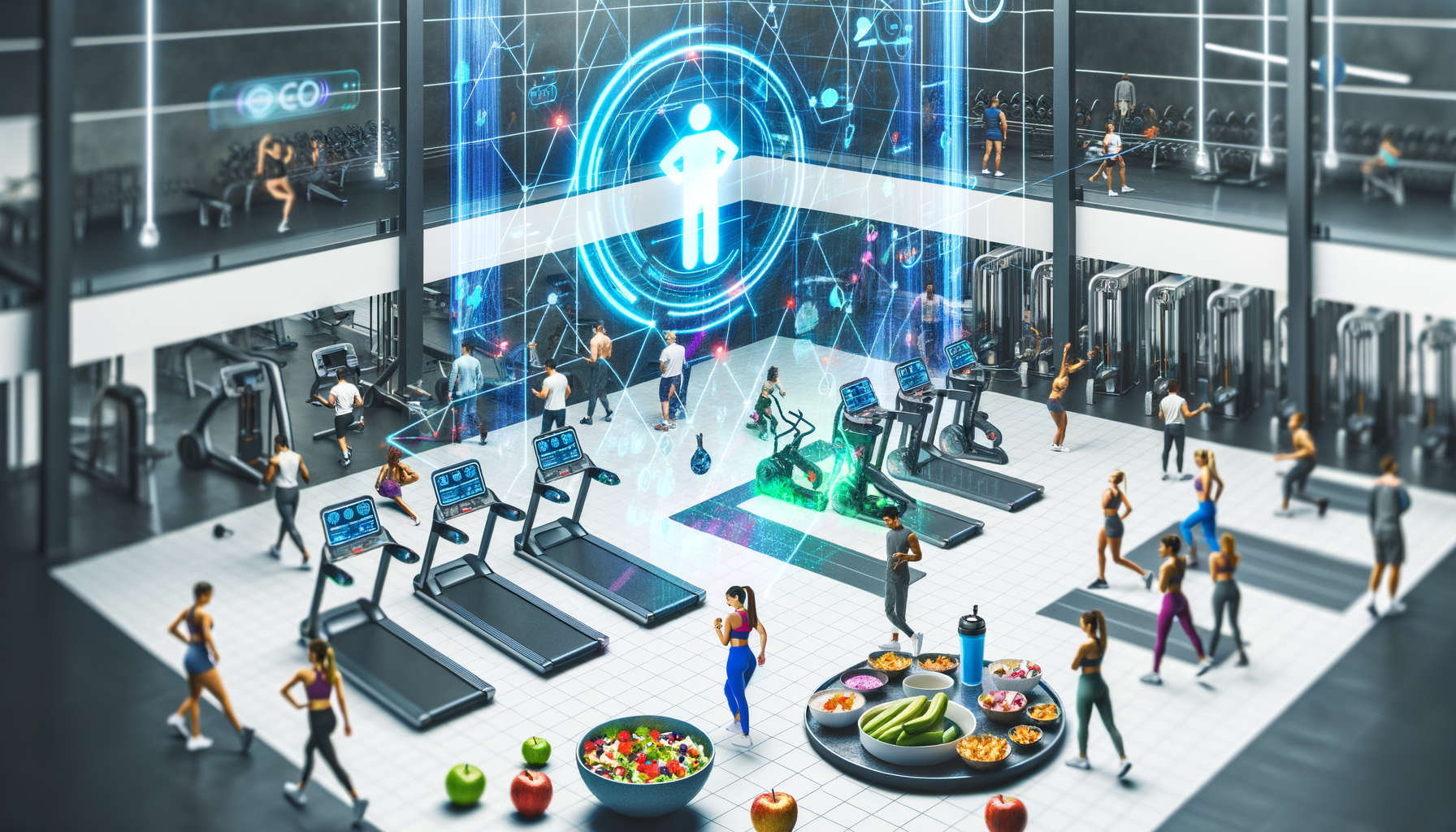The Revolution of Calorie Tracking: How AI is Transforming Health Insights
In the modern era of health and wellness, the integration of artificial intelligence (AI) into calorie tracking and health monitoring systems is revolutionizing the way we approach personal health. This transformative technology is not only enhancing the accuracy of health predictions but also fostering a more preventive and data-driven approach to wellness.
AI Health Predictions: The Power of Predictive Analytics
AI’s capability in predictive analytics is a game-changer in the health and fitness industry. By analyzing vast amounts of data from various sources such as wearables, fitness apps, and genetic information, AI can forecast potential health issues before they become problematic. For instance, devices like Fitbit and Apple Watch utilize AI to monitor heart rate trends, sleep patterns, and activity levels, predicting risks for conditions like atrial fibrillation or sleep apnea.
A real-world example illustrates the impact of AI in health predictions. Maria, a patient with an AI-enabled health monitoring system, was alerted to a rare but serious heart condition early on, leading to timely intervention and significantly improving her quality of life. Such predictive power of AI not only enhances individual health and safety but also personalizes the fitness journey, ensuring users follow routines best suited to their unique health profiles and goals.
Preventive Nutrition: Tailoring Dietary Plans with AI
AI is revolutionizing diet and nutrition management by leveraging vast datasets and learning from user interactions. Apps like Noom and MyFitnessPal integrate AI to offer more than just calorie tracking. They analyze eating habits, food preferences, and nutritional needs to suggest meals and snacks that align with fitness goals. Whether the goal is to lose weight, build muscle, or maintain a healthy lifestyle, AI systems provide actionable insights and practical meal planning.
For example, AI can adapt nutrition plans based on user progress and feedback. If a user reports feeling more fatigued, the AI might suggest increasing carbohydrate intake or adjusting meal timing to optimize energy levels throughout the day. This responsive and adaptive nutrition planning significantly enhances the effectiveness of fitness programs and overall well-being.
Data-Driven Wellness: The Role of AI in Health Monitoring
The integration of AI into health monitoring systems enables more accurate tracking of individual health metrics. AI technologies can analyze data from wearables, health records, and other sources, allowing for predictive analytics that forecast trends and potential health crises before they escalate. This data-driven approach empowers individuals to take greater ownership of their health journey.
For instance, digital health tools utilize AI to analyze data from various sources, creating highly personalized weight loss strategies. These strategies consider factors like metabolic rate, dietary preferences, and psychological triggers, providing a customized roadmap for each patient.
Enhanced Patient Engagement and Real-Time Monitoring
AI-driven health monitoring systems also enhance patient engagement through interactive and user-friendly interfaces. Many apps include features like goal setting, progress tracking, and social support networks, making the health journey more enjoyable and less isolating. Real-time monitoring allows for immediate feedback and necessary adjustments to health plans.
Remote Patient Monitoring (RPM) is a prime example of this. RPM can track key metrics such as physical activity, dietary intake, weight, and vital signs continuously. This real-time data collection enables healthcare providers to track patient progress accurately and make prompt adjustments to their health plans.
Case Studies and Real-World Applications
The impact of AI in health and wellness is not just theoretical; it has numerous real-world applications. For example, hospitals that have adopted AI-driven health monitoring systems have seen a 30% reduction in emergency readmissions and a 50% decrease in medication errors. AI has also enabled early detection of potential complications in chronic conditions like diabetes, resulting in a 20% improvement in patient outcomes.
In the fitness industry, AI-powered apps and devices are transforming how we approach exercise. Virtual trainers and smart fitness trackers use AI to offer personalized advice, minimizing the risk of injury and ensuring better fitness results. Companies like Fitbit and MyFitnessPal leverage machine learning algorithms to provide real-time feedback on fitness and nutrition, leading to a 30% increase in user engagement compared to traditional tracking methods.
The Future of AI in Health and Wellness
As we look to the future, the role of AI in health and wellness promises even more exciting developments and innovations. Emerging trends include smart mirrors that act as personal trainers, AI-driven environments that adjust room temperature and lighting based on the type of workout, and AI implants or biometric sensors that provide deeper insights into body chemistry and muscle performance.
The integration of AI into clinical nutrition is also expected to reshape the field. AI can predict health risks with high accuracy, enable food recognition and tracking, and provide personalized nutritional recommendations. Deep learning models can predict health conditions such as overweight/obesity, dyslipidemia, hypertension, and type 2 diabetes mellitus, offering promising results compared to traditional statistical analysis methods.
Conclusion and Next Steps
The integration of AI into calorie tracking and health monitoring represents a significant leap towards personalized and predictive healthcare. By leveraging advanced algorithms and data analytics, these technologies enable more accurate tracking of individual health metrics, facilitating early detection of potential health issues and promoting proactive lifestyle adjustments.
If you are interested in harnessing the power of AI for your health journey, consider using tools like the Calorie Calculator Cloud, which offers personalized calorie tracking and health insights. For more detailed plans and pricing, you can visit the Calorie Calculator Plans page.
In conclusion, the future of health and wellness is increasingly data-driven and AI-powered. By embracing these technologies, we can achieve better health outcomes, enhance our fitness journeys, and live healthier, more balanced lives.
For more information on how AI is transforming health and fitness, you can explore resources from Psico-Smart, Your Health Magazine, and NCBI.
Additionally, tools like Fitbit and MyFitnessPal are already leveraging AI to provide personalized health and fitness recommendations.
As we move forward in this technological landscape, it is clear that AI will continue to play a pivotal role in shaping the future of personal health monitoring and wellness.








